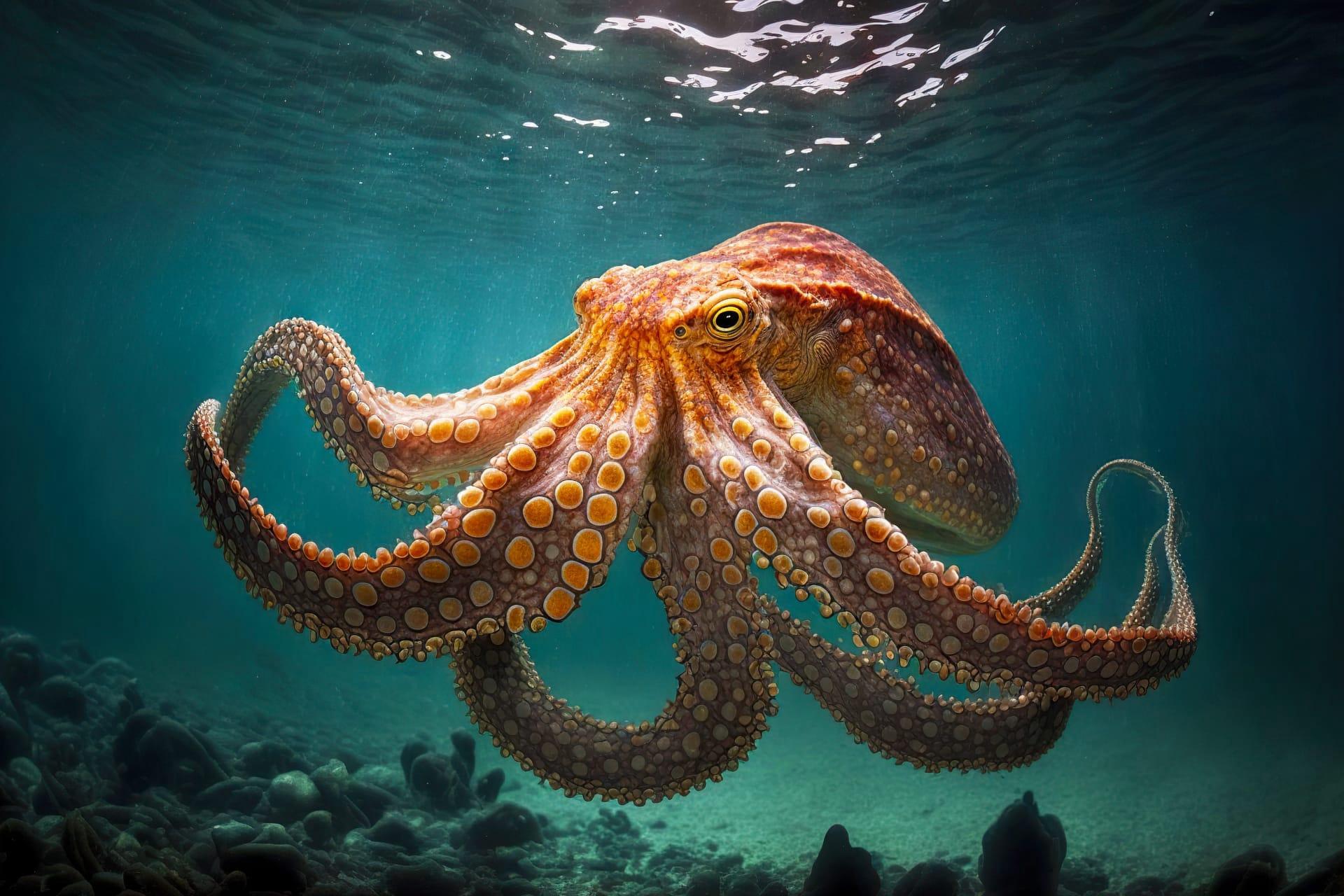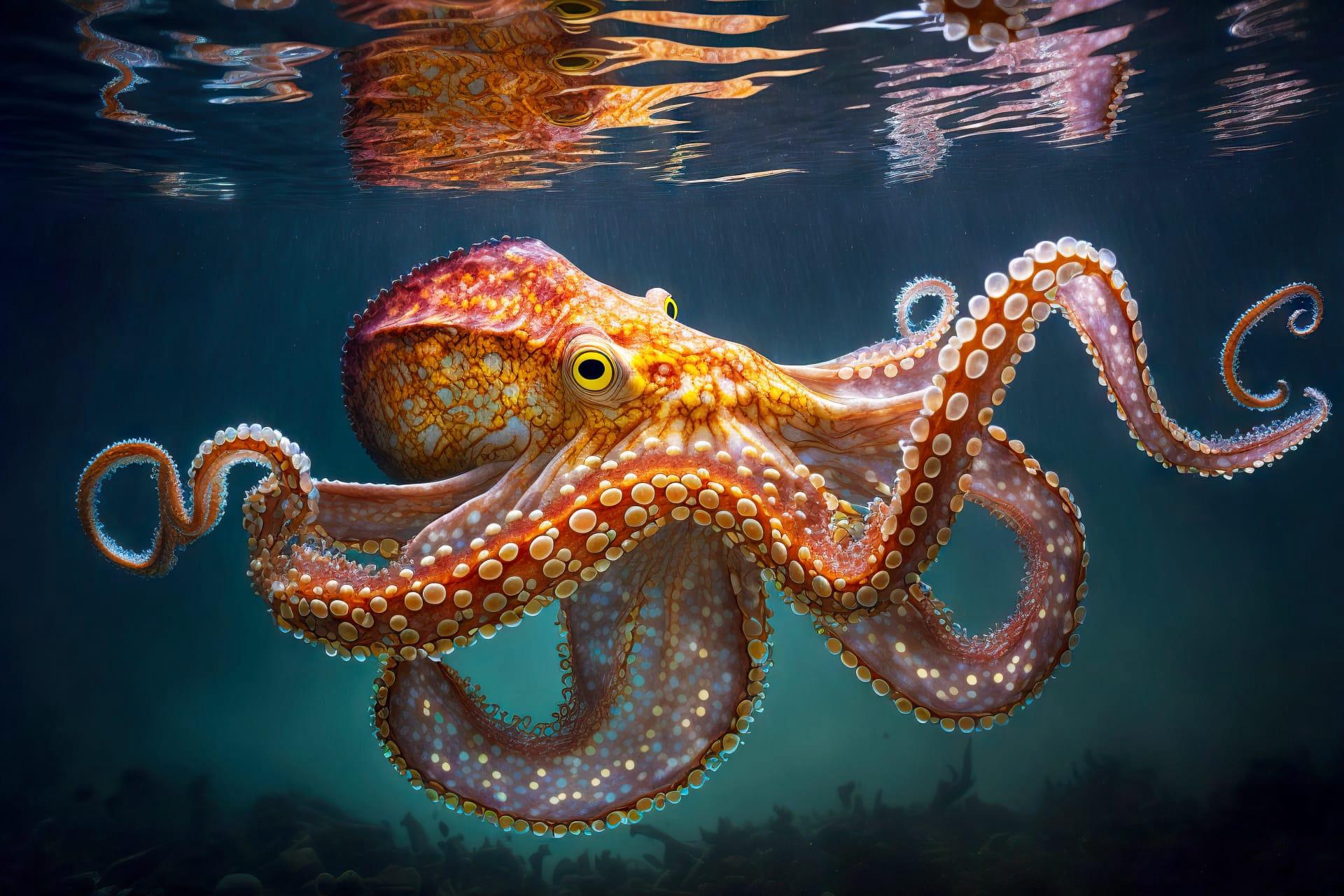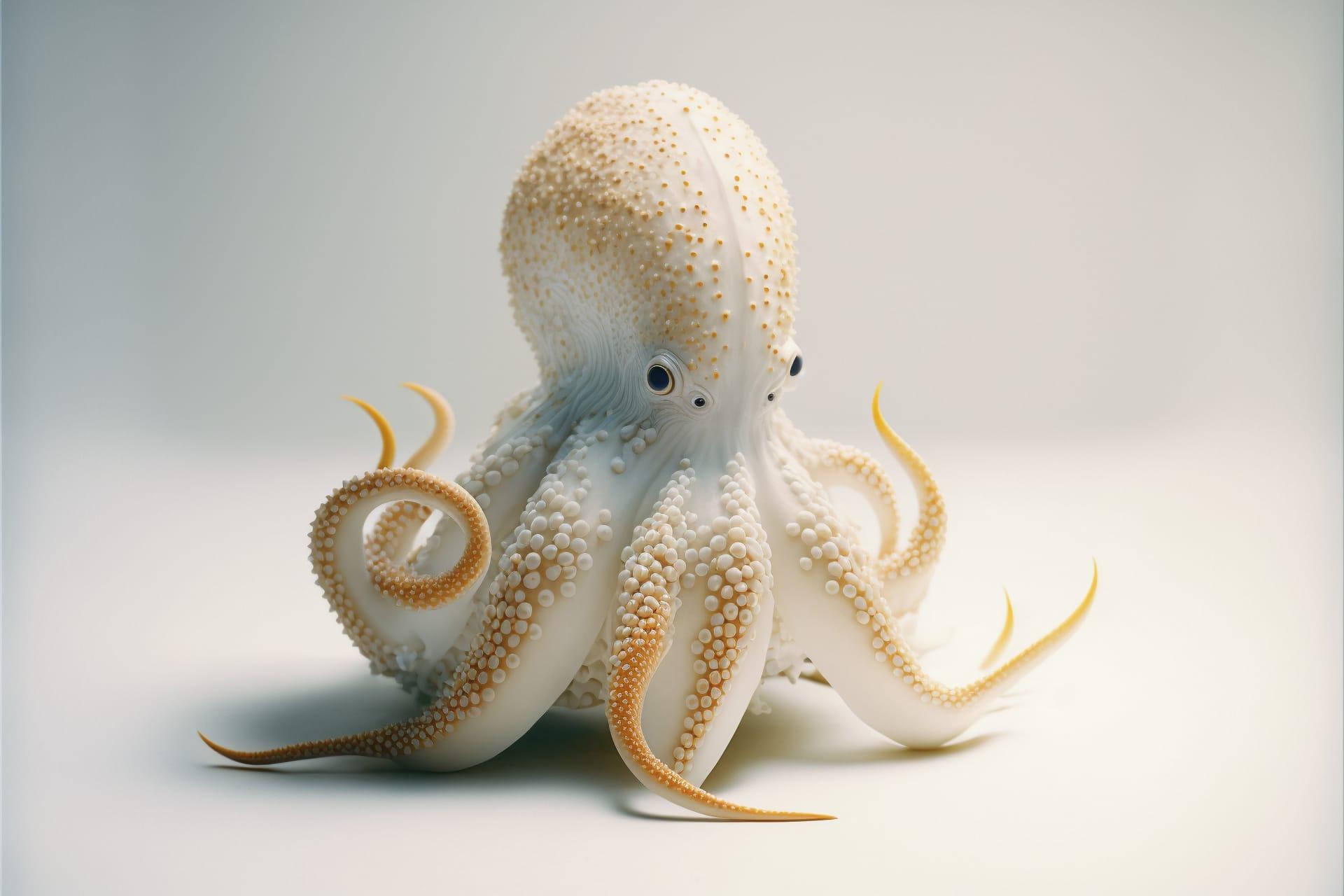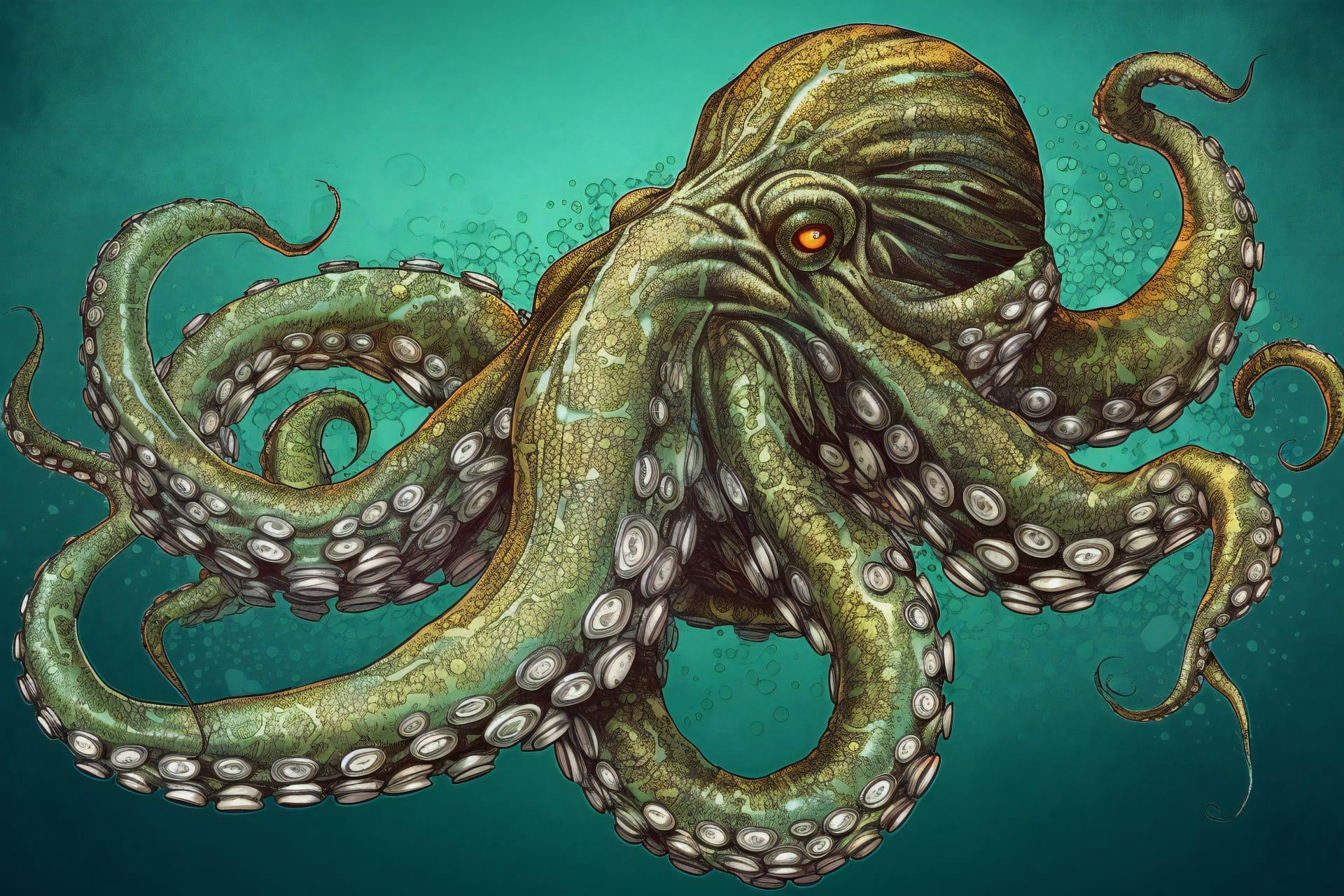Octopus
- Home /
- Mini Encyclopedia /
- Animal /
- Octopus
1
Octopuses, belonging to the order Octopoda, comprise over 300 species, showcasing a wide array of sizes and behaviors. This diverse group is categorized into several families, with the most recognized being Octopodidae, which includes many of the well-known species. The classification is based on various factors such as arm number, the presence of suckers, and other morphological features. For instance, the Giant Pacific Octopus, Enteroctopus dofleini, stands out for its impressive size, potentially reaching over 16 feet across and weighing up to 110 pounds, making it one of the largest and most formidable members of the cephalopod family.
Octopuses are found in every ocean on Earth, from the shallows of coral reefs to the abyssal depths of the ocean floor. Their habitats range widely, adapting from the icy waters of the Arctic to the warm regions of the tropical seas. The common octopus, Octopus vulgaris, demonstrates this adaptability, residing in diverse environments across the globe, from the Mediterranean Sea to the Atlantic Ocean. Their ability to thrive in various ecological niches is partly due to their exceptional adaptability and intelligence, which allow them to camouflage, evade predators, and hunt efficiently across these varied landscapes.

2
A common misconception about octopuses is that they are aggressive and dangerous to humans. This myth likely stems from their alien-like appearance and ability to defend themselves with ink and tentacles.
In reality, octopuses are generally shy and evasive creatures that prefer to hide or flee rather than confront. Most species are not venomous to humans, with the notable exception of the small but potent blue-ringed octopus, whose venom can be lethal. Encounters with these intelligent beings are more likely to be characterized by curiosity or avoidance rather than aggression.

3
Octopuses employ a variety of survival strategies that contribute to their success as a species. Camouflage is one of their most remarkable abilities, allowing them to blend seamlessly with their surroundings to avoid predators. This is achieved through specialized skin cells called chromatophores, which can change color, texture, and pattern in an instant.
Additionally, octopuses are masters of escape, utilizing their soft, malleable bodies to squeeze through incredibly small spaces. This skill, combined with their intelligence, enables them to evade predators and escape from enclosures. Their ability to solve complex problems and use tools, such as using coconut shells as shelter, further highlights their adaptability and cognitive prowess.

4
In the ecosystem, octopuses play a pivotal role as both predator and prey. Their diet typically consists of crabs, fish, and mollusks, making them crucial in maintaining the balance of marine life by controlling the population of these species. Their hunting techniques, which include stealth, speed, and the use of their powerful tentacles, exemplify their role as effective predators.
As prey, octopuses are a vital food source for a variety of larger marine animals, such as sharks, eels, and dolphins. This places them in an essential position within the food web, contributing to the biodiversity and health of marine ecosystems. Their interactions within these environments underscore the interconnectedness of oceanic life and the importance of each species in maintaining ecological equilibrium.

5
Film: "My Octopus Teacher" is a captivating documentary from South Africa, released in 2020. It explores the unusual bond formed between a filmmaker and an octopus living in a South African kelp forest. The film delves into the intelligence and emotional world of the octopus, offering profound insights into its behavior and survival strategies.
Book: "The Soul of an Octopus" by Sy Montgomery, published in the United States in 2015, is a fascinating exploration into the emotional and physical world of octopuses. Through her encounters with these creatures at the New England Aquarium and in the wild, Montgomery reveals their playful nature, intelligence, and individual personalities.
Book: "Other Minds: The Octopus, the Sea, and the Deep Origins of Consciousness" by Peter Godfrey-Smith, an Australian philosopher and scuba diver, was published in 2016. This book combines science and philosophy to examine the minds of cephalopods, particularly octopuses, challenging our understanding of consciousness and the evolution of intelligence.